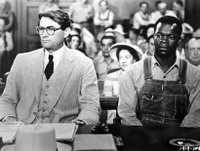SACRIFICE. The word which inspires, evokes reverence, brings compassion, warms your heart, and sometimes wets your eyes. The feeling of being larger than life; of being useful; of doing greatness.
But does it really exist?
Every human being has a set of thoughts and believes. She acquires it over the meandering course of her life. She starts assigning weightages to different parameters which affect her decisions. Some params are old, some are new. The weightages change. Any decision, at that moment of time, is governed by the current set of parameters and their weightages. Much like a cold-blooded foreign exchange transaction.
There come moments when, apparently, we have options to choose between. Deciding moments which will define the universe we will experience. They shape the fate which shall be cursed or thanked. And then arises the notion of sacrifice.
A set of humans put in that situation would generally choose a common option. Its their parameters, which will be mostly be same and have similar weightages, making a choice which is "popular". Yet, there will come along a person who would choose the Road Less Travelled. Disregarding the popular parameters, she goes ahead and picks the abhorred option. The generations to come, the peers who are dumbstruck, the texts which are hungry for ideals; get the rendition of a sacrifice.
The Sacrificer knows, she knows. The truth. She had no options. There didn't exist the popular option for her. Its pseudo-existence was nullified by her personal parameters being weighted differently. Her believes and thoughts could never have made her choose the popular option.
The constraints under which she is operating is different from what a set of people usually experience when they faced that situation. Was she larger than life then? She reached at that juncture influenced by uncountable earlier decisions. The priorities had already been set. The choices had narrowed down. And she chose that.
Should this be called Sacrifice? An act done because she could not have done anything else. It maybe a difficult path ahead down her choice, but she is helpless. Her governing factors leave her no choice. Its a camouflaged helplessness; created by her own value systems and preferences.
Sacrifice is an act which all of us do daily, every moment. We choose what we really believe in. There is no other way. On the contrary, when we (if ever) choose something which we dont believe in, it should be called Sacrifice. We call it Cowardice, though.
Let that act not become larger than life. Let not people forget that they chose something because of their own constraints. And we can't judge whether the Sacrificer has a superior set of constraints and weightages. She is what she is. Her act is hers. A sacrifice is nothing but a choice; acknowledging one's own helplessness.
But does it really exist?
Every human being has a set of thoughts and believes. She acquires it over the meandering course of her life. She starts assigning weightages to different parameters which affect her decisions. Some params are old, some are new. The weightages change. Any decision, at that moment of time, is governed by the current set of parameters and their weightages. Much like a cold-blooded foreign exchange transaction.
There come moments when, apparently, we have options to choose between. Deciding moments which will define the universe we will experience. They shape the fate which shall be cursed or thanked. And then arises the notion of sacrifice.
A set of humans put in that situation would generally choose a common option. Its their parameters, which will be mostly be same and have similar weightages, making a choice which is "popular". Yet, there will come along a person who would choose the Road Less Travelled. Disregarding the popular parameters, she goes ahead and picks the abhorred option. The generations to come, the peers who are dumbstruck, the texts which are hungry for ideals; get the rendition of a sacrifice.
The Sacrificer knows, she knows. The truth. She had no options. There didn't exist the popular option for her. Its pseudo-existence was nullified by her personal parameters being weighted differently. Her believes and thoughts could never have made her choose the popular option.
The constraints under which she is operating is different from what a set of people usually experience when they faced that situation. Was she larger than life then? She reached at that juncture influenced by uncountable earlier decisions. The priorities had already been set. The choices had narrowed down. And she chose that.
Should this be called Sacrifice? An act done because she could not have done anything else. It maybe a difficult path ahead down her choice, but she is helpless. Her governing factors leave her no choice. Its a camouflaged helplessness; created by her own value systems and preferences.
Sacrifice is an act which all of us do daily, every moment. We choose what we really believe in. There is no other way. On the contrary, when we (if ever) choose something which we dont believe in, it should be called Sacrifice. We call it Cowardice, though.
Let that act not become larger than life. Let not people forget that they chose something because of their own constraints. And we can't judge whether the Sacrificer has a superior set of constraints and weightages. She is what she is. Her act is hers. A sacrifice is nothing but a choice; acknowledging one's own helplessness.
